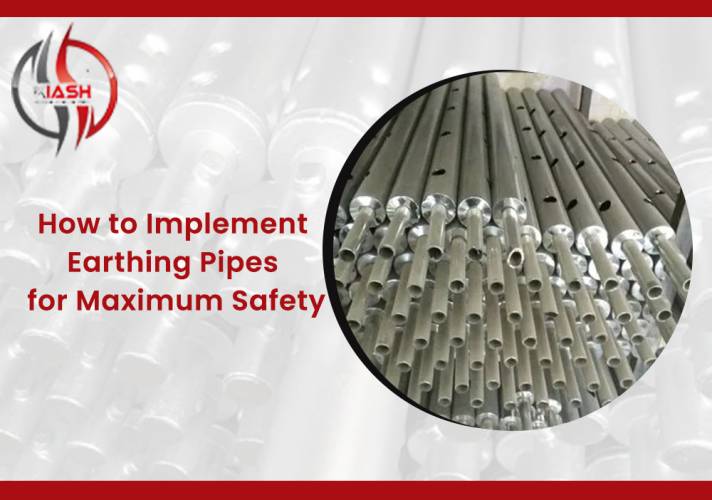
In any electrical system, safety is paramount. Earthing pipes, a fundamental component of grounding systems, play a crucial role in protecting both people and equipment from electrical faults. Implementing earthing pipes effectively ensures maximum safety, minimizing the risk of electric shock and enhancing system reliability.
Earthing pipes, also known as grounding electrodes, provide a direct path to the ground for electrical currents. This pathway is essential for dissipating fault currents, such as those caused by lightning strikes or short circuits, safely into the earth. By directing these currents away from electrical systems and structures, the Earthing Pipe in West Bengal prevents damage and reduces the risk of fires and electric shocks. Properly installed earthing pipes ensure that any excess electrical energy is safely and efficiently neutralized, maintaining the integrity of the electrical system.
Choosing the right materials for earthing pipes is crucial for their effectiveness and longevity. Common materials include galvanized steel, copper, and stainless steel. Copper is often preferred due to its excellent conductivity and resistance to corrosion, making it suitable for various soil conditions. Galvanized steel, while more cost-effective, may require additional protection in highly corrosive environments. Stainless steel offers durability and corrosion resistance but can be more expensive. The choice of material depends on factors such as soil resistivity, environmental conditions, and budget considerations.
The installation of earthing pipes requires careful planning and execution to ensure maximum safety. The first step is to conduct a thorough site survey to determine the optimal location for the earthing pipes. This involves measuring soil resistivity to find grounding sites with low resistance. Once the location is determined, the earthing pipes from Kiash Electricals, one of the premium Earthing Pipe Manufacturers in West Bengal, are driven into the ground to a depth that ensures adequate contact with the earth. The depth may vary depending on soil conditions but typically ranges from three to six meters.
Maintaining the effectiveness of earthing pipes requires regular inspections and testing. Over time, soil conditions and environmental factors can affect the performance of grounding systems. Regular testing, such as measuring earth resistance, helps identify any issues that may compromise safety. Periodic inspections ensure that connections remain secure and free from corrosion. Maintaining earthing system reliability requires promptly addressing wear and damage.
Implementing earthing pipes effectively is essential for maximizing safety in electrical systems. By selecting the right materials, following proper installation techniques, and conducting regular maintenance, you can ensure a safe and reliable grounding system that protects both people and equipment from electrical hazards.